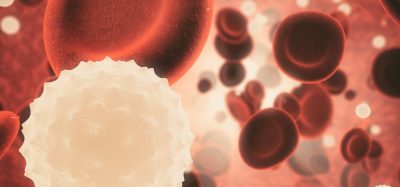Mast cells: new target for preventing meningitis and brain disease
Posted: 4 August 2025 | Drug Target Review | No comments yet
Scientists at Washington University School of Medicine have discovered that mast cells – immune cells best known for triggering allergic reactions – also help protect the brain from bacterial and viral infections. This could have important implications for treating brain infections in the future.


The itching, redness and swelling of an allergic reaction are caused by mast cells – the alert first responders of the immune system that release histamine in response to threat. Whilst often associated with allergies, new research suggests these cells also play a key role in safeguarding the brain.
The researchers at Washington University School of Medicine in St. Louis have discovered that in mice, mast cells stand guard at tiny gates where fluid waste leaves the brain. When pathogens are detected, the cells mount a response to close the gates – preventing bacteria from entering the brain.
“These findings open up an entirely new avenue to developing interventions that would protect the brain from infection,” explained senior author Dr Jonathan Kipnis, the Alan A. and Edith L. Wolff Distinguished Professor of Pathology & Immunology at WashU Medicine. “We now know how mast cells shield the brain, so we can explore enhancing their function during the threat of infections.”
Biomarkers aren’t just supporting drug discovery – they’re driving it
FREE market report
From smarter trials to faster insights, this report unpacks the science, strategy and real-world impact behind the next generation of precision therapies.
What you’ll unlock:
- How biomarkers are guiding dose selection and early efficacy decisions in complex trials
- Why multi-omics, liquid biopsy and digital tools are redefining the discovery process
- What makes lab data regulatory-ready and why alignment matters from day one
Explore how biomarkers are shaping early drug development
Access the full report – it’s free!
Implications for brain infections
The study, published in Cell, could have a real impact on treating diseases such as bacterial meningitis. This life-threatening condition affects the meninges – tissue layers that cover the brain. Tiny gates in these layers normally allow brain fluid to flow into lymphatic vessels – where immune cells monitor it for signs of infection. However, these same openings can also be exploited by bacteria.
Kipnis’ lab previously discovered lymph vessels in the mouse dura mater – the brain’s outer tissue layer. To understand how fluid flow is regulated, the team collaborated with assistant professor of medicine at WashU, Dr Felipe Almeida de Pinho Ribeiro and immunology graduate student Tornike Mamuladze. Together, they found that mice infected with meningitis-causing bacteria – Streptococcus agalactiae or S. pneumoniae – had reduced brain fluid flow through the gates compared with healthy mice.
How mast cells block pathogen entry
The researchers discovered that bacteria in the tissues surrounding the mouse brain activated mast cells – which triggered the release of histamine-containing granules. This caused veins passing through the gates to dilate and temporarily close the pathways – blocking bacteria from entering.
Activated mast cells also launched an immune response by recruiting neutrophils –which swallow and destroy pathogens. When mice lacked mast cells, more bacteria entered their brains, while enhancing mast cell activity before infection reduced the bacterial load.
Looking ahead: links to Alzheimer’s?
Going forward, the researchers plan to investigate whether chronic activation of mast cells could negatively impact conditions like Alzheimer’s disease – which is occurs due to amyloid beta buildup.
“Mast cells have an important role to play in the brain,” said Mamuladze, the study’s first author. “Understanding how to target their function at the gates to the brain to keep pathogens out while allowing waste to leave will be critical for optimising brain health.”
Related topics
Central Nervous System (CNS), Disease Research, Immunology, Neuroprotection, Neuroprotective compounds, Translational Science
Related conditions
Meningitis
Related organisations
Washington University School of Medicine








